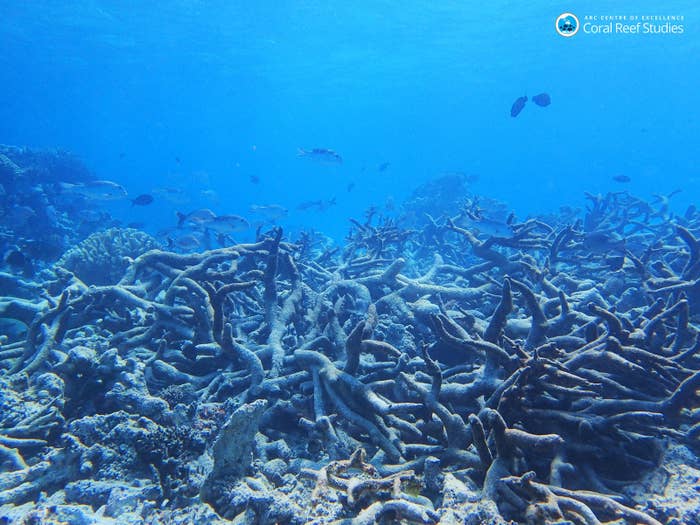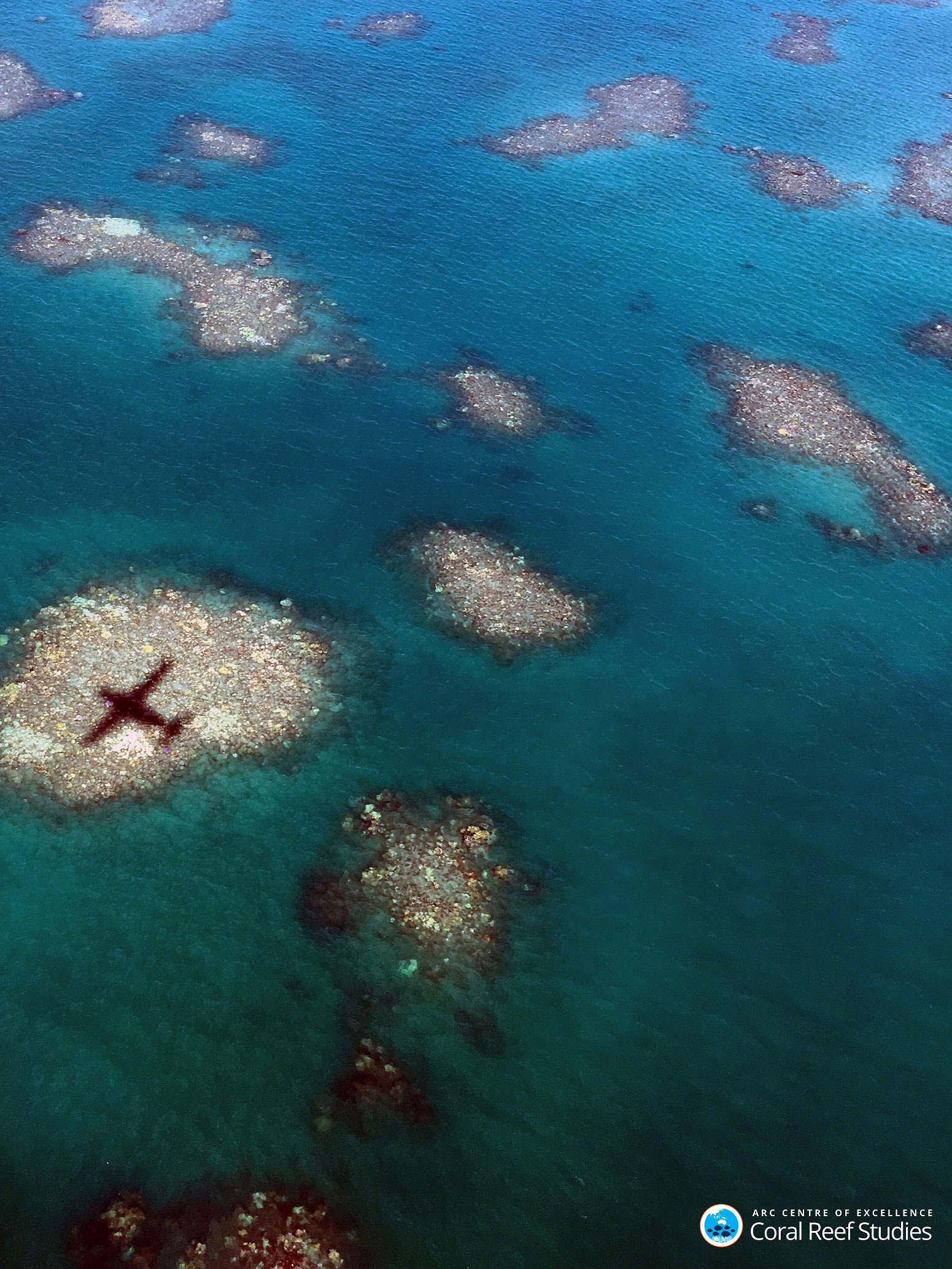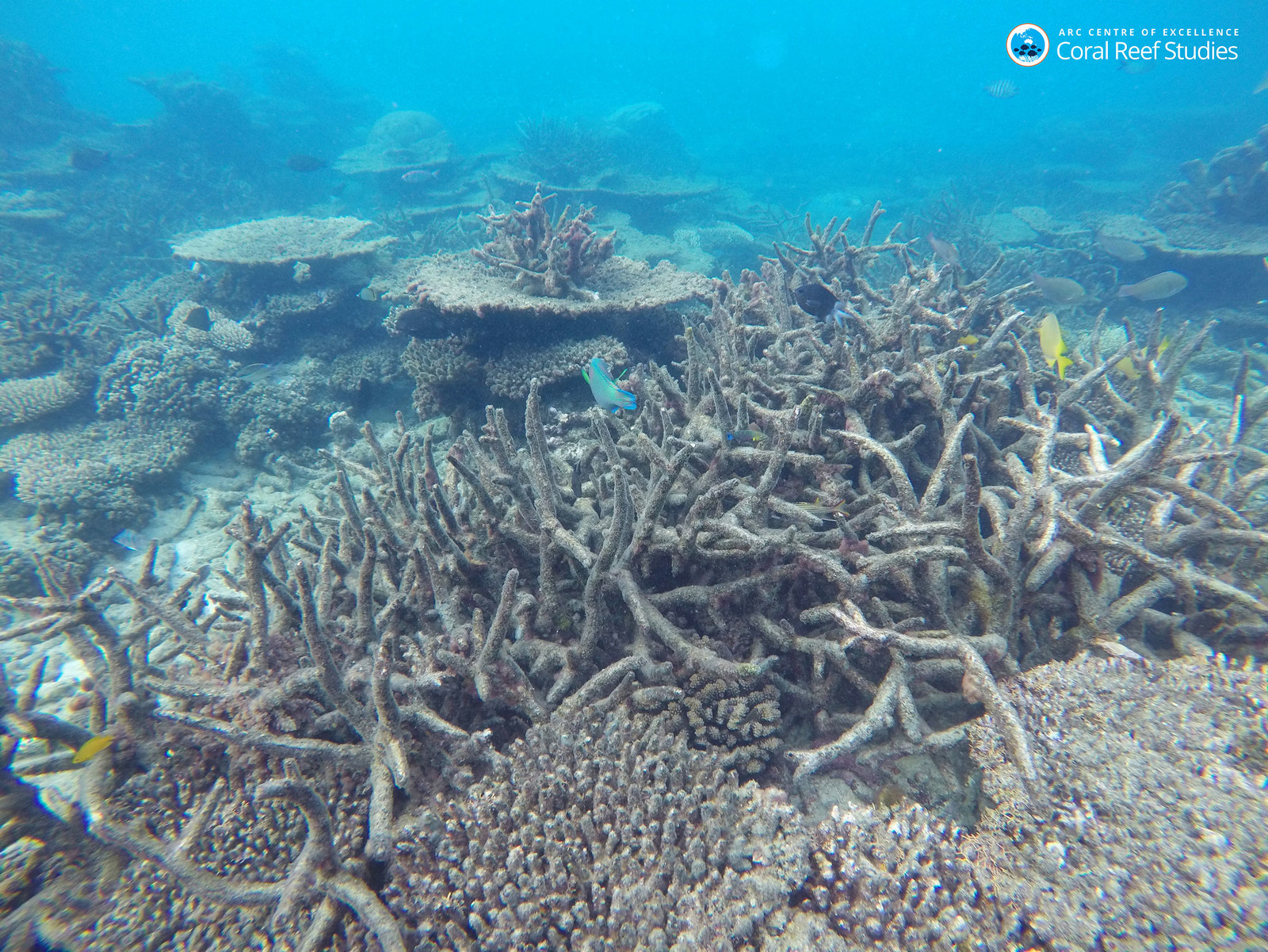All the Australian government's much-hyped efforts to save the Great Barrier Reef will be for nothing if climate change isn't stopped, according to a new report.

For the last year, as the severity of the coral bleaching crisis on the Great Barrier Reef has become more and more clear, the Australian government has pointed to one thing to illustrate its efforts at saving the reef: the Reef 2050 plan.
The plan is a range of measures aimed at improving water quality, managing land use, updating fishing and shipping regulations, and protecting the reef's wildlife.
But a new report published in scientific journal Nature says all the measures contained in the Reef 2050 plan will be for nothing if sea temperatures continue to rise.
The report is the work of dozens of scientists and was headed up by James Cook University professor Terry Hughes, whose research first uncovered 2016's unprecedented coral bleaching event. It has found that improved water quality provides little protection from climate change.
Coral bleaching occurs when abnormally high sea temperatures cause corals to expel tiny photosynthetic algae called zooxanthellae, turning the coral white, and often killing it.

The 2016 coral die-off was the worst on record, with more than two-thirds of corals killed in some areas, and almost 90% of surveyed reefs affected. Just last week, the Great Barrier Reef Marine Park Authority (GBRMPA) announced that another mass bleaching event is underway — the first time bleaching events have occurred in back-to-back years.
There have been two other recorded mass bleaching events – one in 1998 and another in 2002 – but the Nature report says the 2016 episode marked a "fundamental shift" away from viewing each event as an individual episode.
"The cumulative, combined footprint of all three major bleaching events
now covers almost the entire Great Barrier Reef Marine Park," the report states.
The study found that past exposure to bleaching does nothing to increase coral's resistance to extreme heat stress.
The Australian federal government has long talked up improved water quality as one way to ensure the reef is able to recover in the short term, while pointing to the emissions reductions targets agreed to under the Paris climate agreement as a long-term plan for reef sustainability.
"Climate change is the number one threat to the reef, together with water quality issues," federal environment minister Josh Frydenberg told the ABC last month.
"We have been very successful to date, with 151 different measures, more than 30 of which have been completed to reduce the sediment run-off, to reduce the nitrogen and pesticides run-off into the reef, to tackle the crown-of-thorns starfish, and also the work that we're doing more broadly to reduce climate change."
A spokesperson for Queensland's Department of Environment and Heritage Protection backed Frydenberg, saying water management provides an important layer of protection for the reef.

"One of the premises of the article being published in Nature is that local actions such as the reducing pollutants and improving water quality ... would not of themselves prevent coral bleaching, what they will do is significantly improve the reef’s recovery from such events," the spokesperson said.
But one of the Nature report's authors, professor of marine biology at James Cook University Sean Connolly, told BuzzFeed News that will no longer cut it.
"Water quality can help reefs recover from the effects of bleaching, but it doesn’t provide any resistance to bleaching," he said. "The only thing that mattered was how hot it was in 2016."
Connolly said the only solution that will save the reef in the long term was a serious commitment to tackling climate change.
"If we don’t transition quickly to a zero-carbon-emission global economy, then bleaching events will simply get more frequent. The greatest water quality in the world is not going to protect reefs if that continues to happen."
Connolly pointed to the Adani Carmichael coal mine, proposed for Queensland's Galilee Basin, as the biggest threat to the reef.

The mine, which will produce 60 million tonnes of coal a year and significantly contribute to Australia’s greenhouse gas emissions, has the backing of the state and federal governments, which say it will create thousands of jobs.
Frydenberg has dismissed concerns about the mine, saying it is 300km away from the reef, but Connolly says the mine's location makes no difference.
"The threat is that if that coal is dug up and burned, it doesn’t matter where it’s burned, then it will be virtually impossible to keep warming to two degrees," Connolly warned.
"We can have our fossil fuels or we can have a healthy, functioning reef, but we can’t have both," he said.
